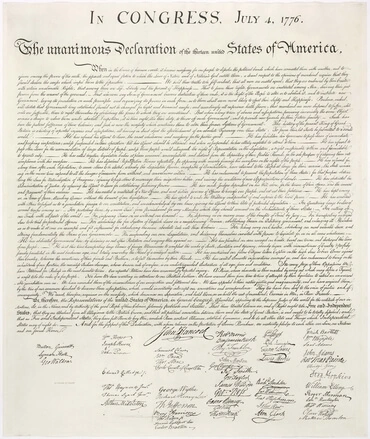1
Mas os filhos de Israel cometeram uma transgressão no tocante ao anátema, pois Acã, filho de Carmi, filho de Zabdi, filho de Zerá, da tribo de Judá, tomou do anátema; e a ira do Senhor se acendeu contra os filhos de Israel.
2
Josué enviou de Jericó alguns homens a Ai, que está junto a Bete-Áven ao Oriente de Betel, e disse-lhes: Subi, e espiai a terra. Subiram, pois, aqueles homens, e espiaram a Ai.
3
Voltaram a Josué, e disseram-lhe: Não suba todo o povo; subam uns dois ou três mil homens, e destruam a Ai. Não fatigues ali a todo o povo, porque os habitantes são poucos.
4
Assim, subiram lá do povo cerca de três mil homens, os quais fugiram diante dos homens de Ai.
5
E os homens de Ai mataram deles cerca de trinta e seis e, havendo-os perseguido desde a porta até Sebarim, bateram-nos na descida; e o coração do povo se derreteu e se tornou como água.
6
Então Josué rasgou as suas vestes, e se prostrou com o rosto em terra perante a arca do Senhor até a tarde, ele e os anciãos de Israel; e deitaram pó sobre as suas cabeças.
7
E disse Josué: Ah, Senhor Deus! por que fizeste a este povo atravessar o Jordão, para nos entregares nas mãos dos amorreus, para nos fazeres perecer? Oxalá nos tivéssemos contentado em morarmos além do Jordão.
8
Ah, Senhor! que direi, depois que Israel virou as costas diante dos seus inimigos?
9
Pois os cananeus e todos os moradores da terra o ouvirão e, cercando-nos, exterminarão da terra o nosso nome; e então, que farás pelo teu grande nome?
10
Respondeu o Senhor a Josué: Levanta-te! por que estás assim prostrado com o rosto em terra?
11
Israel pecou; eles transgrediram o meu pacto que lhes tinha ordenado; tomaram do anátema, furtaram-no e, dissimulando, esconderam-no entre a sua bagagem.
12
Por isso os filhos de Israel não puderam subsistir perante os seus inimigos, viraram as costas diante deles, porquanto se fizeram anátema. Não serei mais convosco, se não destruirdes o anátema do meio de vós.
13
Levanta-te santifica o povo, e dize-lhe: Santificai-vos para amanhã, pois assim diz o Senhor, o Deus de Israel: Anátema há no meio de ti, Israel; não poderás suster-te diante dos teus inimigos, enquanto não tirares do meio de ti o anátema.
14
Amanhã, pois, vos chegareis, segundo as vossas tribos; a tribo que o Senhor tomar se chegará por famílias; a família que o Senhor tomar se chegará por casas; e a casa que o Senhor tomar se chegará homem por homem.
15
E aquele que for tomado com o anátema, será queimado no fogo, ele e tudo quanto tiver, porquanto transgrediu o pacto do Senhor, e fez uma loucura em Israel.
16
Então Josué se levantou de madrugada, e fez chegar Israel segundo as suas tribos, e foi tomada por sorte a tribo de Judá;
17
fez chegar a tribo de Judá, e foi tomada a família dos zeraítas; fez chegar a familia dos zeraítas, homem por homem, e foi tomado Zabdi;
18
fez chegar a casa de Zabdi, homem por homem, e foi tomado Acã, filho de Carmi, filho de Zabdi, filho de Zerá, da tribo de Judá.
19
Então disse Josué a Acã: Filho meu, dá, peço-te, glória ao Senhor Deus de Israel, e faze confissão perante ele. Declara-me agora o que fizeste; não mo ocultes.
20
Respondeu Acã a Josué: Verdadeiramente pequei contra o Senhor Deus de Israel, e eis o que fiz:
21
quando vi entre os despojos uma boa capa babilônica, e duzentos siclos de prata, e uma cunha de ouro do peso de cinqüenta siclos, cobicei-os e tomei-os; eis que estão escondidos na terra, no meio da minha tenda, e a prata debaixo da capa.
22
Então Josué enviou mensageiros, que foram correndo à tenda; e eis que tudo estava escondido na sua tenda, estando a prata debaixo da capa.
23
Tomaram, pois, aquelas coisas do meio da tenda, e as trouxeram a Josué e a todos os filhos de Israel; e as puseram perante o Senhor.
24
Então Josué e todo o Israel com ele tomaram Acã, filho de Zerá, e a prata, a capa e a cunha de ouro, e seus filhos e suas filhas, e seus bois, jumentos e ovelhas, e a sua tenda, e tudo quanto tinha, e levaram-nos ao vale de Acor.
25
E disse Josué: Por que nos perturbaste? hoje o Senhor te perturbará a ti: E todo o Israel o apedrejou; queimaram-nos no fogo, e os apedrejaram:
26
E levantaram sobre ele um grande montão de pedras, que permanece até o dia de hoje. E o Senhor se apartou do ardor da sua ira. Por isso se chama aquele lugar até hoje o vale de Acor.







